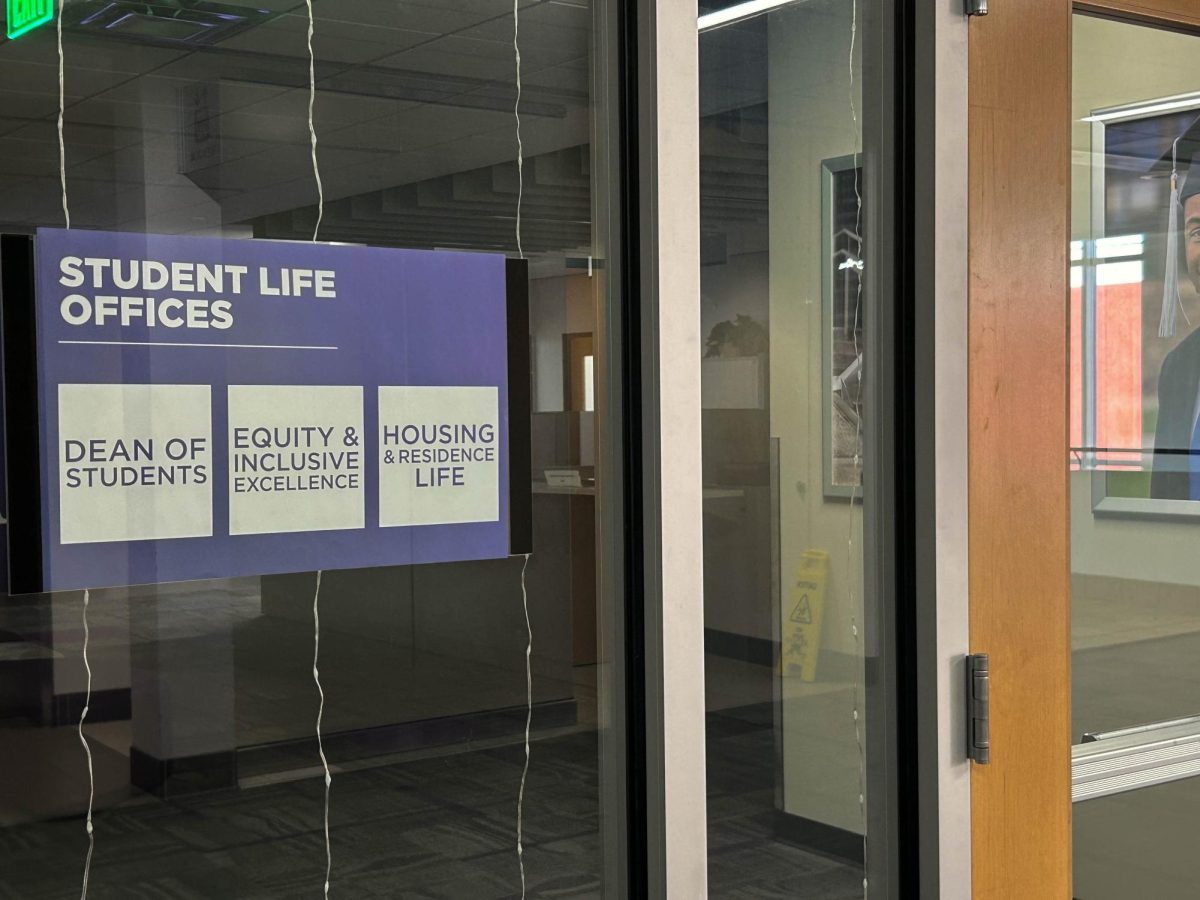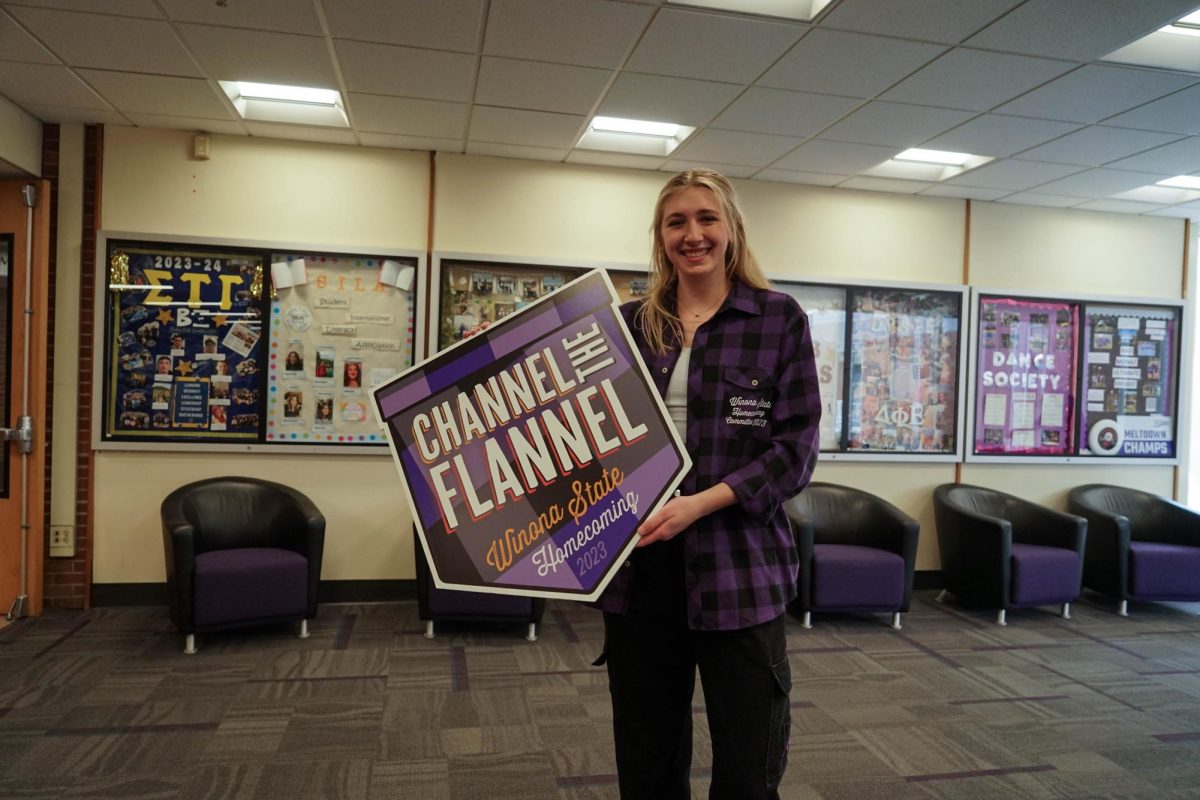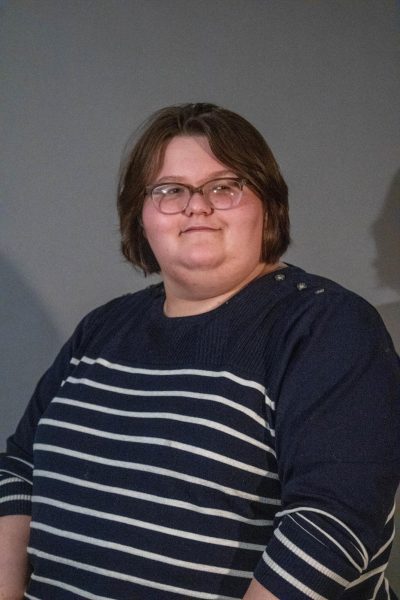Over the first week of April, the Office of Equity and Inclusive Excellence (EIE) held interviews for the finalists of the Associate Vice Principal/Chief Diversity Officer position. A search committee, composed of the Office of Equity and Inclusive Excellence, deans and students, alongside representatives from the Winona State University Rochester campus and Winona State’s bargaining units held the interviews in Maxwell on the mornings of April 1st, 2nd, and 5th.
According to Dr. Denise McDowell, the Vice President of Enrollment Management & Student Life, and the Interim Associate Vice Principal for the EIE office, the Associate Vice Principal (or Chief Diversity Officer) for Equity and Inclusive Excellence is not only a bridge to different parts of campus and students but also allows connections with many others.
“You’re also working with faculty. You’re also working with staff. It’s a position that sits on the cabinet to be an advisor to the president about issues that come up on campus,” McDowell said.
The AVP position also works closely with Title IX cases, HR, system offices, and Minnesota State’s Equity 2030 Initiative, amongst other things. As McDowell describes much more eloquently, The AVP is our navigator.
The position has been vacant since August 1st, when the former AVP, Dr. Jonathan Locust, left the position. This is the second search that has happened for an AVP since then, as the committee was looking for someone who not only had the right technical and soft skills but could “level-up” Winona State from where Locust left off. However, McDowell feels confident that the 3 finalists who were interviewed would be up for the challenge.
“If Dr. Locust left us at a level four or five, [the finalists] were thought to be able to take us to seven, eight, nine, before they moved on to other career opportunities. So, we’re really excited, and hoping one of them says yes to Winona State University.”
During the finalist interviews, the Winona State community had a chance to ask the finalists questions, and the finalists got a chance to ask questions in return. The campus community could tune in whether via zoom or join in person. The search committee asked those who attended afterwards to complete a survey (that was sent to student emails) about the candidates, which included stating your role in the campus community, what you liked about the candidates, and any concerns you have. According to McDowell, responses were received through the survey.
All three candidates have backgrounds in diverse settings and either hold or have held positions within both Minnesota and University settings.
On April 1st, Dr. Mohamed Ahmed found himself the first finalist at the head of a U-shaped table in Maxwell. According to an email sent out campus-wide on March 25th, Ahmed has held multiple positions in California, ranging from a Chief Diversity Officer position to public relations roles. He is currently the head of Diversity, Equity, Inclusion & Belonging at Alliant International University as of November 2020, and is both Senior Advisor for Equity and Inclusion and a board member at Metro Youth Diversion Center in Minneapolis, a role he has held since June 2018. Ahmed has a BA in International Security and Conflict Resolution, a MA in Postsecondary Educational Leadership, and a PhD in Higher Education Leadership.
At the beginning of his interview, Ahmed said that he was drawn to Winona State in particular because of its mission statement.
“What really drew me to this was a particular line where it said ‘Preparing graduates for responsible leadership, and creative problem-solving. And I kind of just look at all the stuff that is happening around the world, and around the country, and just the idea of creating responsible leaders and creative problem-solvers- this is what we need, you know, as human beings,” Ahmed said.
A majority of Ahmed’s interview focused on what the Office of EIE is looking for – bridging the gap between students and resources, retention of marginalized students, and not only starting conversations to figure out what students need, but how to get students those resources. The interview also highlighted how much of a personal job being the AVP is. “I would say that [students] view me as someone who is an advocate for them, someone who puts their best interests first, and someone that is a mentor,” Ahmed said, when asked about how students describe his leadership practices.
April 2nd saw Ms. Amanda Peterson having her interview in the same place that Ahmed did. According to the same email mentioned previously, Peterson is currently the Chief of Staff, Diversity and Programs for Human Services at Launch Ministry, an IDEA Specialist for the Department of Employee Relations at Dakota County and is a Zion Cultural Competency & Inclusion Race Equity Consultant for Zioncci.com. She holds a BA in Biblical Theological Studies and a BA in Health Psychology, and a MA in Counseling Education.
Peterson started her interview with both her educational and work history, which includes running a nonprofit that serves unsheltered youth and young adults in Chaska, Minnesota, and changing majors several times to find something that fit her. While she originally thought that she didn’t want to end up in education, she also said that she didn’t feel that it was necessarily the right setting for her. But it was her grandmother that explained, it’s what agitates you the most that you should go after. And so, Peterson decided to begin a career in which she could create new spaces and establish the right setting for her.
Peterson’s interview was similar to Ahmed’s in their focus on resource equity and student needs, but Peterson’s also delved into a theoretical framework referred to as ‘collective access’. “Collective access,” Peterson explains, “is really focusing on defining what access means… It’s really articulating, based on social identities, what do individuals need to gain access to whatever it is [that] the goal is. So, if we’re talking about an academic space, what is the material that they need to get access to?”
The third interview started on the morning of April 5th, with Dr. Pos Lis Vwj. Vwj is currently in the Minnesota State Colleges and Universities system as the Interim Associate Vice Chancellor for Equity & Inclusion. Vwj has also held several other Equity & Inclusion positions within universities, alongside several appointments as a Professor of Sociology at various universities. He has both a BS and a PhD in Sociology.
Vwj started off with sharing his background is sociology, with his specialties being topics such as race, ethnicity, law, crime, intersectionality, and deviance. He goes on to talk about the concept of positionality, of which Vwj dives into.
“With all these different lenses that come together, my way of viewing the world is filtered through my experiences, filtered through the different statuses that I hold,” Vwj said. Vwj uses this as a steppingstone to explain that when Diversity, Equity and Inclusion (DEI) work is work for some people, while it’s a passion for him, it’s also real life.
“If you’re not at the table, often times nobody is advocating for your identity. And so, I think about that in terms of being a DEI leader in rooms where important decisions are sometimes being made or discussed,” Vwj said.
Vwj shared a lot of experiences where him being Hmong and in a higher education position was influential, as it allowed him to connect with students who are Hmong, and also allowed him to realize that students didn’t feel like they belonged, like they might be back in the Twin Cities (which has the highest Hmong population in the US). It wasn’t only Hmong students who were impacted by his presence – Vwj spent a lot of time both in Mankato and Nevada working to help underrepresented students navigate higher education, from figuring out who to go to for a specific problem, to helping students with name changes when there was still pushback against it. Vwj also worked to engage students with not only college-related experiences, such as events similar to Winona State’s ‘Cultural Cafes’, but almost mundane ones as well – including taking students on fishing or other outdoor trips, when they wouldn’t have that opportunity otherwise.
According to McDowell, the committee in charge of looking for the next AVP has made their recommendation to President Janz, and if the plan succeeds, they should be able to offer the finalist a position at Winona State to start in the coming months.






























































